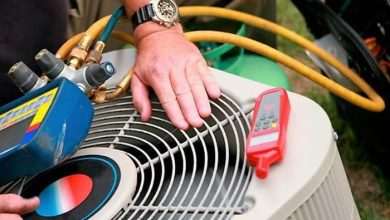
When it comes to water heater installation, choosing the right system for your home is crucial for ensuring comfort, reliability, and energy efficiency. A water heater is essential for daily tasks such as showers, laundry, and washing dishes. With various options on the market, selecting the right type can be overwhelming. This comprehensive guide will help you understand different types of water heaters, key factors to consider during installation, and how to make an informed decision.
Types of Water Heaters
Understanding the different types of water heaters is the first step to making an informed decision. Each system offers distinct advantages depending on your needs, home size, and energy efficiency preferences.
1. Tank Water Heaters
Tank water heaters are the most common type of system used in homes. They store a large volume of hot water in a tank, keeping it ready for use.
- Gas vs. Electric Tank Heaters
Tank water heaters come in two main types: gas and electric. Gas models are generally more energy-efficient and can heat water faster, making them ideal for households with high hot water demand. Electric heaters, while less efficient, tend to have lower upfront installation costs and can be a good option for smaller homes or locations without access to natural gas. - Important Features
When choosing a tank water heater, it’s essential to consider features like insulation and sacrificial anodes. Insulation helps reduce heat loss, increasing energy efficiency, while sacrificial anodes prevent the tank from corroding, extending the lifespan of the system.
2. Tankless Water Heaters
Tankless water heaters heat water only when it’s needed, providing hot water on demand. These systems are ideal for smaller homes or those looking to reduce energy consumption.
- Gas, Electric, and Condensing Tankless Heaters
Tankless water heaters are available in gas, electric, and condensing models. Gas tankless heaters are popular due to their higher flow rates, making them suitable for larger households. Electric models are easier to install and are best for homes with moderate water usage. Condensing tankless heaters offer higher efficiency by capturing exhaust gases to pre-heat incoming water. - Flow Rate
When choosing a tankless system, you need to consider the flow rate, which measures the gallons of hot water a heater can provide per minute (GPM). For example, a shower typically requires 2.5 GPM, while dishwashing may require about 1.5 GPM. To calculate your household’s flow rate needs, total the GPMs of all appliances that will use hot water simultaneously, such as showers, washing machines, and dishwashers. - Cold Water Sandwich Issue
Some tankless heaters may cause a cold water sandwich, a brief period of cold water between hot water when the system switches on and off. This issue can often be mitigated by installing a recirculation system.
3. Heat Pump Water Heaters
Heat pump water heaters (HPWHs) use ambient air or ground heat to heat the water, making them more energy-efficient than traditional models.
- Air-source vs. Ground-source
Air-source heat pump water heaters extract heat from the air and are ideal for milder climates. Ground-source heat pump water heaters use heat from the ground, making them more efficient in colder regions but requiring more installation space and a higher initial investment. - Climate Considerations
HPWHs work best in environments with warmer temperatures. They tend to be less efficient in colder climates because they rely on external air or ground heat. It’s important to install them in areas with consistent ambient temperature and good ventilation. - Noise Factor
HPWHs can be noisier than traditional water heaters, as they operate similar to a refrigerator. Installing the unit in an area like a basement or utility room can help minimize noise disruptions.
4. Solar Water Heaters
Solar water heaters harness the energy of the sun to provide hot water, making them one of the most eco-friendly options available.
- Active vs. Passive Systems
Solar systems are categorized as active or passive. Active solar water heaters use pumps and controllers to circulate water through the system, while passive systems rely on natural circulation. Active systems are more efficient but require a more complex setup. - Sizing the System
Proper sizing of both the solar panels and the storage tank is essential. A typical household will need around 1.5 to 2 square meters of solar panel surface for every person in the household. - Incentives and Rebates
Many areas offer rebates and tax incentives for installing solar water heaters, making them a more affordable option for homeowners looking to go green.
5. Condensing Water Heaters
Condensing water heaters capture and reuse the exhaust gases produced during combustion to improve efficiency.
- How They Work
These systems condense water vapor from exhaust gases and use that heat to pre-warm incoming cold water. This process makes them more efficient than traditional gas water heaters. - Efficiency and Costs
While condensing water heaters are highly efficient, they tend to have higher upfront costs and may require specific venting systems to function properly.
Factors to Consider for Water Heater Installation
Choosing the right system isn’t just about the type of water heater. Several factors should be considered before installation to ensure your system meets your household’s needs.
Sizing and Capacity
Choosing the right size is essential for optimal performance. Here’s a guide to help:
| Household Size | Recommended Tank Size (gallons) | Tankless Flow Rate (GPM) |
| 1-2 People | 30-40 gallons | 3-4 GPM |
| 3-4 People | 40-50 gallons | 5-7 GPM |
| 5-6 People | 50-80 gallons | 8-10 GPM |
Typical Water Usage:
- Shower: 2.5 GPM
- Dishwasher: 1.5 GPM
- Washing Machine: 2 GPM
Energy Efficiency
Water heaters are rated by their Energy Factor (EF) or Uniform Energy Factor (UEF), which measures their efficiency. Higher ratings indicate better efficiency.
- Good EF/UEF: 0.60-0.75
- Better EF/UEF: 0.75-0.90
- Best EF/UEF: 0.90 and above
These ratings help you compare the energy consumption of different models, ultimately guiding you toward an energy-efficient choice that saves on bills.
Installation Location
Proper installation is key to ensuring your water heater operates safely and efficiently. Important requirements include:
- Clearance Space: Adequate space for ventilation and access for maintenance.
- Ventilation Needs: Ensure the unit has proper ventilation to expel gases.
- Proximity to Gas Lines/Electrical Outlets: Ensure ease of connection.
- Pressure Relief Valve: This safety feature prevents excessive pressure buildup.
Professional Water Heater Installation
While DIY installation may seem appealing, water heater installation should always be handled by a licensed professional to ensure compliance with local codes and manufacturer guidelines. A professional will also ensure the system is correctly sized and installed for optimal performance.
Conclusion
Choosing the right water heater installation is essential for a comfortable, energy-efficient home. With a wide range of systems available, it’s important to consider factors like size, energy efficiency, climate, and installation requirements. Whether you opt for a traditional tank system, tankless heater, or an eco-friendly solar or heat pump model, professional installation will ensure a reliable and long-lasting solution.



